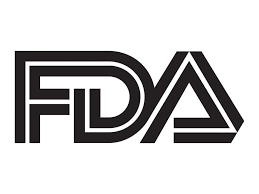FDA Decision on UCB's Bimekizumab for Plaque Psoriasis Delayed by CRL
Promising 2-year data for the IL-17 targeting biologic were recently presented at AAD 2022.

The US Food and Drug Administration (FDA) has issued a Complete Response Letter (CRL) to UCB for its Biologics License Application (BLA) for bimekizumab as a potential treatment of moderate to severe plaque psoriasis.
The CRL stated pre-approval inspection observations raised by the FDA must be resolved prior to any decision on UCB’s application, according to a statement from the company Friday. They reiterated their intent to cooperate with the FDA and address the issues raised in the CRL “as expeditiously as possible.”
“UCB is committed to bringing bimekizumab to patients worldwide,” the company stated, highlighting the biologic agent’s recent authorizations in Europe, Japan, Canada, and Australia—each for adult plaque psoriasis treatment indications.
A monoclonal antibody agent that targets and inhibits the interleukin 17A and 17F (IL-17A; IL-17F) pathways, bimekizumab has been among the most promising inflammation-blocking investigative drugs to be developed for chronic dermatologic diseases. Data from earlier this week showed adults with moderate to severe psoriasis treated with bimekizumab over 2 years reported good tolerance and a favorable safety profile.
During the American Academy for Dermatology (AAD) 2022 Annual Meeting this March, investigators reported long-term findings from the same phase 3 trial program showing that more than 80% of all treated patients to achieve Psoriasis Area Severity Index 100% clearance (PASI 100) by week 16 had maintained their skin clearance through 2 years of bimekizumab.
In discussing the emerging field of dermatologic agents while at AAD 2022, Raj Chovatiya, MD, PhD, assistant professor in the Northwestern University Feinberg School of Medicine’s department of dermatology, dubbed bimekizumab as the next likely approved agent for psoriasis care.
“The data looks to work quickly, it looks to be efficacious, and largely safety data seems to be pretty good all around,” he explained. “So, we're seeing a lot more excitement in psoriasis than we were expecting, even decades after we saw our first biologic.”